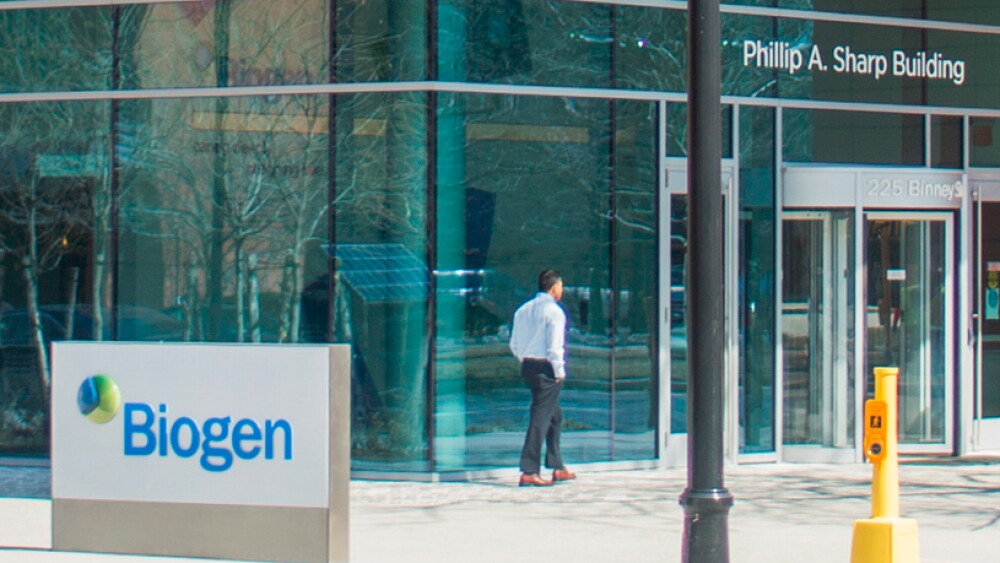October 26, 2016
By Mark Terry, BioSpace.com Breaking News Staff
While there were definitely positive things in Biogen ’s third-quarter report the company also threw in what almost seemed like an afterthought—it was no longer developing amiselimod (MT-1303). MT-1303 was licensed from Mitsubishi Tanabe Pharma Corporation (MTPC) in September 2015 for $60 million up front with a potential $484 million in milestone payments.
MT-1303 is an oral drug that targets the sphingosine 1-phosphate (S1P) receptor. Biogen planned to evaluate it in multiple sclerosis (MS), ulcerative colitis, Crohn’s disease, and other autoimmune disorders. Mitsubishi had run a successful Phase II trial in MS.
John Carroll, writing for Endpoints News says, “We’ll have to wait for more of an explanation for the sudden about-face from Biogen during the call. Biogen was much more vocal when it bagged the worldwide (ex-Asia) license for amiselimod (MT-1303) a little more than a year ago. … Company CMO Al Sandrock highlighted the drug in an interview I had with him at the latest JP Morgan gathering. At the time, Biogen was looking at putting the Phase III-ready autoimmune drug through a rapid late-stage development plan for multiple sclerosis, but whatever it found out about the drug in the meantime must have chilled their enthusiasm.”
And, as Carroll hints, this could have broader implications. Amiselimod has the same mechanism of action as Celgene ’s ozanimod, which it picked up when it acquired Receptos for $7.2 billion.
But it may not necessarily be related to mechanism of action, but rather the competition. Carroll quotes a recent Jefferies note to investors, which suggests that Biogen might have been having second thoughts about MT-1303. “Phase II Crohn’s data is still possible by year-end as well as a Phase III start in inflammatory bowel disease (IBD), though our sense was that Biogen is closely examining the evolving competitive landscape to determine potential next steps. … We believe this is prudent given the lead time other drugs have over MT-1303.”
Otherwise, Biogen reported total quarterly revenues of $3 billion, up 6 percent from the same quarter in 2015. This was driven by a 10 percent rise in global Tecfidera revenues, as well as improved revenues from Tysabri, Electate, Alprolix and Benepali.
The company also indicated that its aducanumab, currently in a Phase III trial for Alzheimer’s disease, was showing promising data. It also updated its nusinersen program.
“We also made significant progress in several important pipeline programs,” George Scangos, the company’s chief executive officer, said in a statement. “We completed the rolling submission of a New Drug Application to the FDA for nusinersen within two months of receiving the positive interim results from the ENDEAR study—Biogen’s fastest filing time in our 38 year history. Earlier this month, we also filed a Marketing Authorization Application with the European Medicines Agency. If approved, nusinersen would be the first treatment for patients with spinal muscular atrophy, a leading genetic cause of death in infants.”
The company also gave a modest update on its spinoff of its hemophilia unit, which was announced in May. Biogen had decided to make it a separate, independent, publicly-traded company which will be headquartered in the Boston area and be run by John Cox, Biogen’s executive vice president of Pharmaceutical Operations & Technology.
The new company will be called Bioverativ and the spinoff is expected to be conducted in early 2017. It will be listed on the Nasdaq under the symbol “BIVV.”





